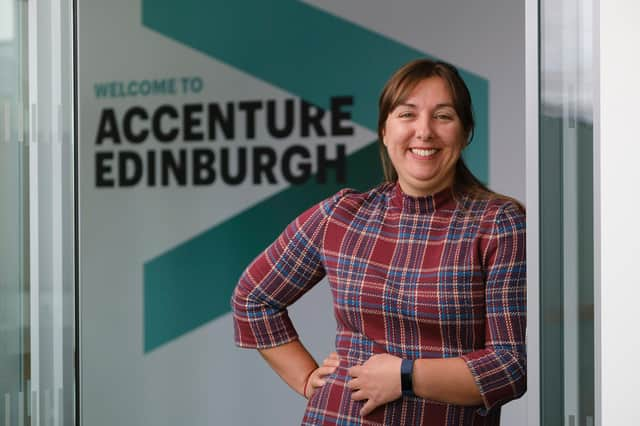Business goes to the metaverse and beyond - Michelle Hawkins


This year, after 20 months of disruption caused the pandemic, the top five trends that emerged spanned the metaverse and the new workplace through to “nature positive” sustainability and care in all senses and contexts.
How we view work, the technology we use, what we choose to buy and from whom, have all undergone a massive shift. Lifestyle, health and the environment have taken on far greater significance.
Advertisement
Hide AdAdvertisement
Hide AdFor all businesses, understanding the changing relationships with the workplace, consumerism, technology and the planet, as well as converting those insights into potent business strategies, is critical to maintaining relevance and driving growth in 2022.
Already, most business leaders will have seen and adapted to the changing expectations of colleagues. The Fjord report identifies this as the rise of a ‘me over we’ mentality as people question what truly matters to them and it is set to continue with profound implications for how we attract and retain talent. It finds that in many cases there is already a humanisation of the workforce, with employees’ professional and private lives blending more. Alongside, businesses are acknowledging the need for different working patterns, the changing role of work premises and what employee benefits resonate.
The second trend is ‘the end to abundance thinking’. We are all very used to the idea of getting what we want, when we want it. Convenience and speed of access or delivery is second nature. But over the past year, many of us have witnessed and felt what it’s like to face empty shelves, rising energy bills, and shortages in everyday services. At the same time, we are acutely aware that our drive for more is costing the planet dearly.
While supply chain shortages might be temporary, the impact will persist with the authors predicting new approaches to sustainability, particularly relating to the environment as businesses come under mounting pressure to tackle climate change.
Businesses will have to rethink how they use resources and potentially overhaul their ways of working. ‘Less,’ however, doesn’t have to mean ‘loss’ and innovation doesn’t always have to mean ‘new.’
Another emerging theme for business is the metaverse: the new convergence of physical and digital worlds, providing somewhere else to exist and relate when we’re apart—at least while the physical world gets back on its feet. Not just for gamers, it promises endless riches and could lead to a cultural evolution—only time will tell.
For most businesses and organisations, it is going to take a lot of trial and error to work out how or if their customers fit in this new world, but the potential is undoubtedly there.
The fourth trend identified - ‘this much is true’ - emerges from one of the great advantages of the internet: if you have a question, you can always find an answer online. The fact that it’s so easy and immediate means we’re asking more questions. For brands, the range of customer questions and the number of channels for asking them is growing constantly.
Advertisement
Hide AdAdvertisement
Hide AdHow to answer them is a major business challenge, and therefore a critical driver for trust, leading the report to predict a further growth in AI – and particularly sophisticated conversational AI – that brings product and brand information together for the consumer. This should be good news for Scotland’s positioning as a global leader in digital intelligence capabilities.
The final key trend is ‘handle with care’ and embraces self-care, care for others, the service of care, and the channels to deliver care (both digital and physical). Regardless of any connection with health, organisations must now define how they embed care into their practices and services —for employees, customers and wider society.
The role of business is to respond to changes in human behaviour. More than ever, that role also includes tackling the challenges of society. As we start out on the third year of living with CVOID19, there continue to be challenging times ahead, but grasping the trends that are emerging out of the crisis creates opportunity to design new systems, create new businesses and support the world around us.
Michelle Hawkins, managing director, Accenture Scotland
Comments
Want to join the conversation? Please or to comment on this article.